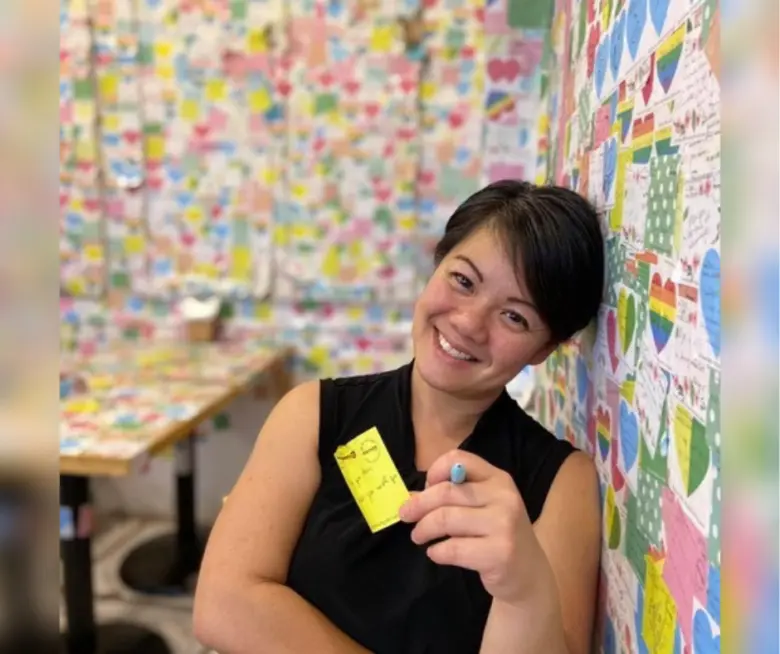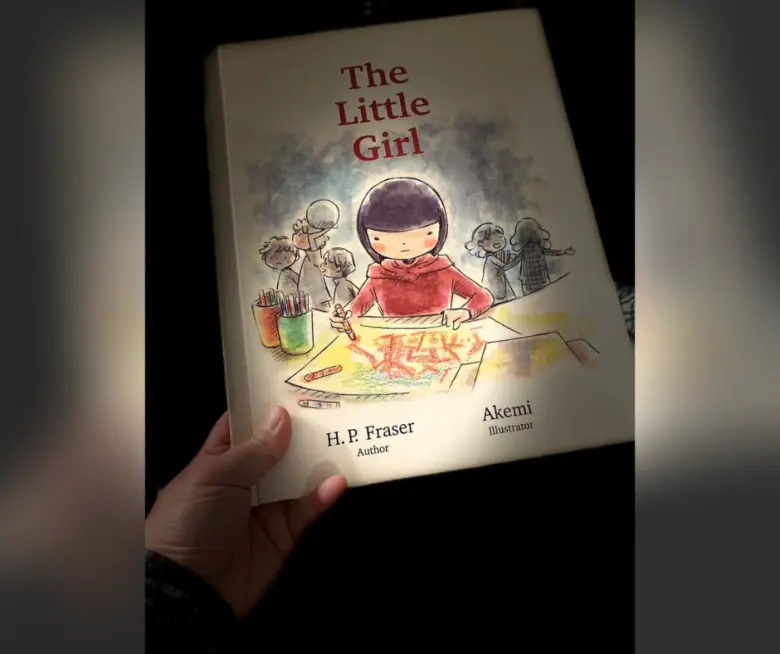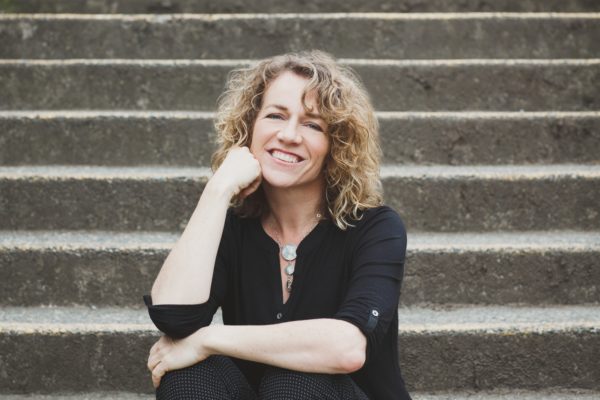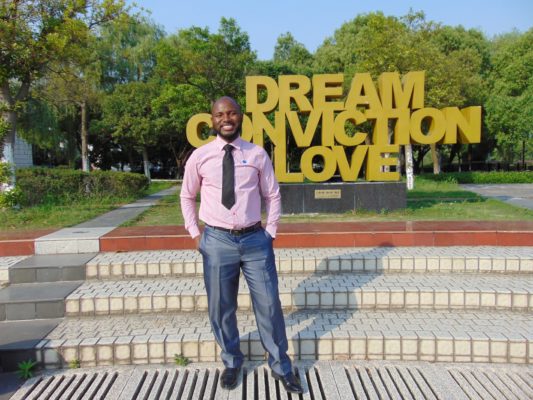
A photo of Hieu. © Courtesy of Hieu Pham-Fraser
In the 1970s and 1980s, Canada welcomed thousands of refugees, often referred to as “boat people” who fled political persecution after the Vietnam civil war ended. Hieu Pham-Fraser and her parents were among them.
Now 47-years-old, a teacher and a published children’s author living in British Columbia, Hieu uses her voice to advocate for refugees. The Vietnamese Canadian author explains why it’s so important for her to say ‘#IAmAnAdvocate’
Add your name to the #IAmAnAdvocate pledge and join UNHCR in sending send a clear message: everyone counts, and there is no place for xenophobia and racism in our world.
What was your experience fleeing Vietnam and coming to Canada?
My Dad, who was a Naval captain at the time, aided our escape by steering the fishing boat of 128 Vietnamese people to the shores of Thailand where we stayed for almost a year in the refugee camp Songla. It was the United Nations who established and funded the camp.
I am cognizant that if the United Nations did not act, we would not have had a refuge of safety.
It was also the United Nations who advocated and organized the delegate interviews from many different countries including the United Kingdom, Denmark, Australia, and so many others.
Eventually, the Canadian government offered us resettlement. We came by plane to Montreal because my parents were fluent in French. After a few days, my Mom–who never asks for anything–asked that we be moved to ‘the warmest part of the country.’ That was when we were matched with a United Church who was waiting to offer sponsorship. The Canadian government gave us coats and $20, and flew us to the Victoria airport where we were picked up and eventually settled in a small city on Vancouver Island, British Columbia.
What inspired you to write the book, The Little Girl, your children’s book that follows the life of a refugee girl arriving in Canada and integrating into the school system in the 1980s?
I actually wrote the story many years ago. The process of writing down the experience helped me to turn towards my own past, to accept it and begin the journey of being proud of my own identity. I also wrote it for my students. As a teacher, I noticed many of my students changed or anglicized their name. When I ask them about it, many admitted they liked their name in their first language, but they felt the schools would accept them more if they changed their names.
I also wanted people to understand that, although being a refugee was one of the most challenging things that has ever happened to me, it does not define me.
I, like thousands of refugees around the world are resilient, resourceful, kind-hearted, and empowered to be leaders and contributors in their resettled communities. I want our refugee children to see that they can be proud that their families are overcoming the challenges of being a refugee and that they can dream for a prosperous future where they can stand as equal citizens among everyone in their community.

A photo of Hieu’s book. © Courtesy of Hieu Pham-Fraser
At the heart of the #IAmAnAdvocate campaign is the idea that being a refugee is a state of existence – it isn’t someone’s entire identity or being. How have you seen former refugees in your life succeed and thrive once they are resettled in a country like Canada, where they are safe from the violence and persecution, they may have faced in their home country?
Yes! I remember I was part of an ESL (English as a Second Language) classroom and almost everyone in that class was a refugee! I am still in touch with some of my old classmates. We have grown up now to be independent adults who lead ordinary lives. My friends and I strive for the same things everyone else strives for: family, friends, a safe home, a career that fulfills us–the basics.
Except, for us, an ordinary life is a miracle–I remember this every day.
As a refugee advocate, what support, community and help do you think is integral for those who are resettling in Canada?
I think of the saying, “it takes a village…” When new families come to settle, they will need the community to help. The parents will need shelter, employment, English learning classes; the children will need to feel safe and supported in schools and in their neighbourhood; and the sponsors will need education and resources to be positive, antiracist mentors. This is easy to say but each area is complex and requires us all to do our part. Whether one is exposed to the experiences of someone who is a refugee or not, being curious, being willing to learn or contributing your skills, time or money can go a long way in making a difference to newcomer refugee families and individuals.
Canada has a strong history of supporting refugees. What is the importance of bringing refugees issues to the forefront of the conversation, in Canada and worldwide?
Today, more than any other time in history, we have more people displaced. The need for refugee resettlement is ever more urgent now. Many people still carry a negative bias towards refugees and this needs to be addressed. Bringing refugee issues to the forefront gives us a space to learn, discuss and unpack the complexities of the refugee experience so we can be better allies and advocates for a more peaceful, sustainable global community.
What would you like to tell the Canadian public about the importance of helping refugees?
Helping refugees is a sound investment in our communities. Many refugees I know in my work and my personal life are incredibly resilient, resourceful, hard-working, adaptable and quick learners. These are all transferable traits for success. Refugees also have many unique lived experiences which can offer invaluable insights to the communities, companies and institutions they are a part of.





